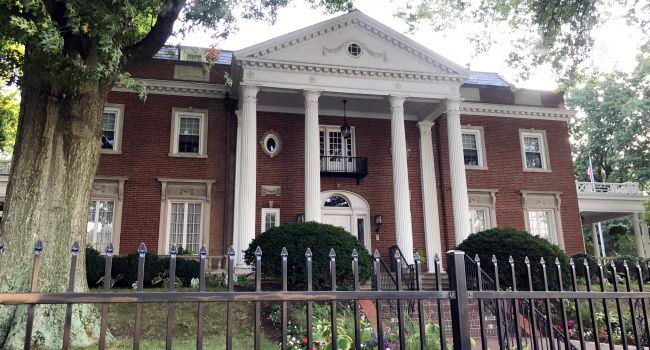CHARLESTON — Gov. Jim Justice has gotten a reprieve on where he resides.
A lawsuit over the governor’s residence has been dismissed because the state delegate who filed it didn’t provide required notification about his lawsuit.
Kanawha Circuit Judge Charles King dismissed the lawsuit Monday, but Delegate Isaac Sponaugle is already hatching plans to re-file.
Sponaugle, a Democrat from Pendleton County, filed the lawsuit as a citizen, contending Justice has not lived up to the state Constitution’s requirement to live at the seat of government.
Where Justice lives has been an issue since he took office. He has continued to make his home in Lewisburg, a couple of hours from the Capitol. He says he works hard no matter where he is and that he may be reached at all hours via his flip phone.
Monday, King wrote, “It is undisputed that Petitioner did not comply with the pre-suit notice requirements set forth in W.Va. Code 55-17-3 prior to instituting this action.
“More specifically, petitioner did not provide Respondent and/or the Attorney General written notice, by certified mail, return receipt requested of the alleged claim and the relief desired at least thirty days prior to the institution of this action.”
Sponaugle provided notification Aug. 9 about his lawsuit — after the original had been filed and in anticipation that the judge might rule as he did.
“As a result, I can refile my action at any time with either the Circuit Court of Kanawha County or the West Virginia Supreme Court,” Sponaugle stated Monday.
Sponaugle continued, “I will be refiling my Writ of Mandamus action with the West Virginia Supreme Court within the next week. I want this matter resolved in a timely manner by the highest court of the State of West Virginia.”
A preliminary hearing before Judge King was Aug. 27, after which lawyer Mike Carey, representing the governor, said the state contends Justice lives up to his obligation.
“It must be left to the discretion of the constitutional officer to implement that requirement. And the courts will not get involved in requiring a constitutional officer to do certain things in the future.”
Carey went on to say, “I don’t think any court will have any interest in providing oversight to the activities of the governor, who, in his discretion performs his duties.”
The state Constitution addresses where officers of the executive branch should live: “They shall reside at the seat of government during their terms of office, keep there the public records, books and papers pertaining to their respective offices, and shall perform such duties as may be prescribed by law.”
That applies to the governor, secretary of state, auditor, treasurer, agriculture commissioner and attorney general.
Sponaugle got so frustrated, he filed a lawsuit, seeking to compel the governor to live where the Constitution specifies.
“I want Gov. Jim Justice to follow the West Virginia Constitution and show up to work,” Sponaugle stated Monday. “I’m not interested in the governor’s delay tactics to run out the clock until his term expires, 27 months from now.”
Justice has maintained his position that he doesn’t need to live at 1716 Kanawha Blvd. E., Charleston, also known as the Governor’s Mansion.




